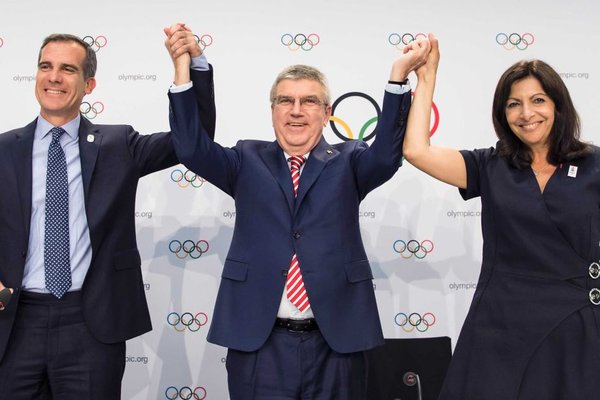Hosting the Olympic games can be an expensive, corrupt, and unpredictable business. It is a very high-risk but potentially high-reward proposition: Effective hosts see their cities enjoy substantial economic boosts and an upgraded image, while poor hosts risk wasting just as much money and tarnishing their reputation. The Olympic games should only be assigned to cities that can shoulder the financial burden. The recent announcement of two developed tourist hubs, Paris and Los Angeles, as hosts for the 2024 and 2028 summer games might be indicative of the lessons learned from past host selections.
The 2016 Olympics in Rio de Janeiro were a disaster for Brazil. An uninhabitable Olympic Village, literal sewage in the water used for the rowing events, and body parts washing up on the shores next to the beach volleyball court were just some of the issues that plagued the Rio games. The problem was that Rio de Janeiro had too many problems to fix, too many projects to build, and not enough resources or time to do so before the games.
That's not to say there wasn’t much invested—the costs of Rio 2016 were estimated at a staggering US$4.6 billion, with $1 million still owed to creditors a year after the games. While that figure was lower than those of previous summer games—such as London in 2012, costing $10.4 billion—it does not paint the whole picture. What’s more important is that London has continued to make use of the buildings it developed for the games. The 2012 Olympic stadium is now a soccer stadium inhabited by a Premier League team, and the Olympic village was converted into apartments.
Meanwhile, in Rio de Janeiro, the iconic Maracana Stadium sits in a state of disrepair and ruin after its use in the 2016 games and 2014 FIFA World Cup. The concept of Olympic venues being treated as one-time-use facilities is not a new one for the Olympics: In Beijing, the baseball stadium, kayaking facility, cycling arena, and volleyball courts have all been abandoned. The recent trend is that fully-developed countries tend to host better-organized games than developing countries and make better use of their venues once the games have ended.
The good news is that the hosts of the upcoming summer games look promising, with Tokyo set to host in 2020, followed by recently-announced Paris and Los Angeles in 2024 and 2028, respectively. These three locations present a possible new direction for the future of Olympic city selection. Each host city is fully-developed and looks well-equipped to handle the events. Furthermore, France and the United States are the two most internationally-visited countries in the world, per the World Tourism Organization. The countries already have the infrastructure to handle millions of people descending upon their cities and, if London is any indication, will be able to make good use of new constructions once the games are over.
In fact, representatives from the Olympic committees for both Paris and Los Angeles estimate that around 90 per cent of the required facilities have already been built. This existing infrastructure ensures that the summer games will be hosted by competent and prepared groups for the next 12 years.
Traditionally, host cities are announced one at a time, instead of the double announcement of Paris and Los Angeles last week. The punctual announcement is good for Paris, which will have nearly seven years to prepare. The advantage is greater for Los Angeles, which now has over 10 years to build the necessary infrastructure for the games. It’s easy to be optimistic about these upcoming games. If the games live up to their promise, they could serve as a shining example for the rewards of effective city selection for the International Olympic Committee.








